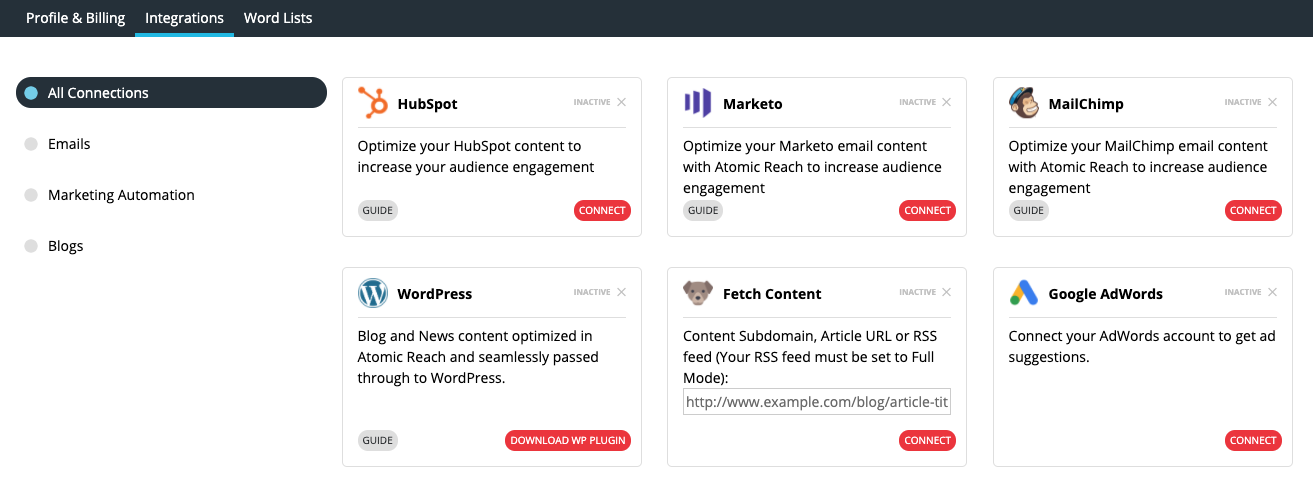When analytics tracking mechanisms are properly integrated into your marketing technology stack, you typically have a wealth of data to analyze. Focusing on content analysis provides the data-driven insights that can elevate your content marketing performance. This process has become just as important as the creative efforts in the field. Identifying patterns and trends in your content’s performance provides you with valuable knowledge that can inform and benefit your content strategy and planning. But do you have the right resources and platforms in place? In this post, we’ll share some effective content analysis tools that you’ll want in your stack.
What Is Content Analysis?
First, let’s start by defining what we mean by content analysis. In terms of content marketing, it’s the process of analyzing the ability of your content to drive traffic and leads. This type of analysis includes performance and SEO metrics as well as assessing content quality.
What you learn from the analysis can help you optimize content, understand user engagement, and more. You can then make data-driven decisions on all aspects of content, including:
- Topics
- Formats
- Length
- Distribution channels
- Keyword performance
- Quality of writing
Now, to the list of content analysis tools that are the most impactful.
Content Analysis Tools
The following is a list of tools you can use in content analysis. We segmented them by category so you can find what you need: Google Tools, SEO, and Content Auditing.
Google Tools
Google Analytics
We’ll start with the OG content analysis tool, Google Analytics. Since its inception, it’s been providing data on all types of traffic and interactions on websites. It will give you the foundation to understand a wide variety of content. Some of the most important metrics here are:
- Pageviews
- Referral traffic
- Time on page
- Bounce rate
- Visitor behavior and demographics
- SEO
You can also set up goals to track conversions. It provides overall metrics and page by page, so you can drill down to understand if and how customers are consuming your content.
If you need help with set-up or fine-tuning your account, check out Google’s video below.
Google Search Console
Another platform from Google that’s great for content analysis is Google Search Console. This tool allows your webmasters to ensure that Google can successfully crawl your pages.
It will diagnose your domains if it finds problems, which is imperative for Google to rank your content. It also provides search analytics. The video below is a great introduction to the functionality.
SEO Tools
SEMrush
SEMrush is a very powerful SEO platform that offers deep insights into how your website performs in this area. The features are almost overwhelming; there are so many. Those that relate most to content analysis include:
- On-page SEO
- Local SEO and content optimization recommendations
- Rank tracking for keywords you’re targeting
It works by analyzing your website’s content to provide critical information about how you’re executing your SEO content strategy and where gaps exist. With these insights, you can make tweaks that can lead to greater traffic flow.
Ahrefs
Ahrefs is very similar to SEMrush. It has tools for optimizing your website and tracking ranking progress. It has other features, as well, relating to keyword research and competitive analysis. It gives your site a “health” score in the website analysis, along with crawled URLs, errors, links, and any issues.
Yoast
Yoast is a plug-in for WordPress, and it’s an all-in-one metadata and on-page tool. You simply add it to each page, and it organizes your meta titles, descriptions, and focus keyword(s). The analysis part of the tool is very beneficial. It will “grade” your SEO and readability.
For SEO, it determines if you’re following on-page best practices (appropriate density, use in headers, alt tags, etc.). For readability, it gives you a Flesch score and provides recommendations to improve it by making formatting and syntax changes. It feels really good to see those green lights on Yoast!
Content Auditing
Atomic Reach
Atomic Reach uses platform integrations and AI engines to:
- Ingest content data from all your content properties
- Analyze existing content to learn what your audience likes.
- Optimize your content for better results.
- Measure the impact of using the tool.
It integrates with many other tools and boasts major results: 89 percent growth in pageviews, 32 percent growth in time spent on-page, and 78 percent growth in conversion rates. Below is a dashboard view for content auditing.
Grammarly
Grammarly also uses AI and machine learning to improve content. It will check for all the typical grammar issues but does much more. It identifies areas where you should clarify the wording so that it’s stronger or rework syntax. You also have the ability to set criteria for the content, including audience and tone. It’s an excellent tool to ensure consistency in your content.
How DivvyHQ Supports Content Analysis
Our content marketing software offers features across the content marketing continuum. While it’s a content marketing project management tool with workflows, content calendars, and planning features, it also offers content analytics support that can complement the tools above, including:
- Content strategy metadata management, which enables filtering and reporting of the data. Users find this helpful in understanding strategic alignment across audiences and topics.
- Content strategy review and recommendations.
- Content auditing and archiving.
- Content performance analytics via an aggregation of data from multiple sources.
If you’d like to experience the content analysis features of DivvyHQ and much more, you can try it for free.
